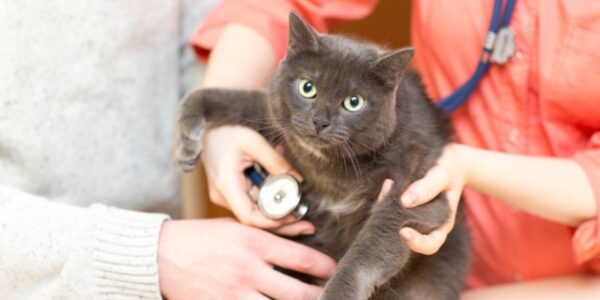Desexing Services at Vets on Parker
Desexing is a vital procedure for maintaining your pet’s health and well-being. At Vets on Parker, we provide expert desexing services to help prevent unwanted litters and manage behavioural and medical concerns. Whether you have a cat or dog, our veterinary team ensures a safe and comfortable experience for your pet.
What is Desexing?
Desexing, also known as neutering or spaying, is a surgical procedure to remove the reproductive organs of your pet. For male animals, this involves the removal of the testicles (neutering), while for female animals, it includes the removal of the ovaries and uterus (spaying). The procedure is typically performed under general anaesthesia and is a routine, low-risk surgical procedure when handled by our professional vets.
Dog & Puppy DesexingCat & Kitten Desexing
Benefits of Desexing Your Pet
Desexing offers numerous health advantages, including:
- Prevention of Unwanted Litters: Controlling pet overpopulation by reducing the number of unwanted puppies and kittens.
- Reduced Risk of Certain Health Issues: Lower risk of developing uterine, ovarian, and testicular cancers, as well as other reproductive system infections and diseases.
- Improved Behaviour: Reduction in aggressive behaviour, roaming tendencies, and territorial marking, especially in male pets.
- Longer, Healthier Life: Desexed pets tend to live longer, healthier lives with fewer behavioural and health issues.
When Should You Desex Your Pet?
The ideal time to desex your pet can vary based on species, breed, and health conditions. Consult our veterinary team to determine the best time for your pet.
The Desexing Process at Vets on Parker
At Vets on Parker, we prioritise the safety and comfort of your pet during the desexing process. Our procedure includes:
- Pre-Surgery Consultation: A full health check to ensure your pet is ready for surgery, along with a discussion about pre-operative care—including a blood test as part of the preoperative routine.
- Surgery Day: The surgery will be performed by one of our experienced veterinarians, who will perform the procedure with precision and care under a general anaesthetic.
- Post-Surgery Care: After the surgery, your pet will be monitored closely. We provide detailed instructions for aftercare to ensure a smooth and speedy recovery. A follow-up appointment for 3-5 days post-surgery will be scheduled. A second consultation will be scheduled in 10-14 days for a recovery assessment.
Post-Surgery Recovery
After desexing, most pets recover quickly with proper post-operative care. This includes:
- Wound Care: Monitoring the incision site for signs of infection and keeping it clean.
- Pain Management: We provide pain relief medications to ensure your pet’s comfort during recovery.
- Activity Restriction: Limiting your pet’s activity to prevent strain on the incision site, especially during the first week after surgery.
Why Choose Vets on Parker for Desexing?
At Vets on Parker, we have a team of highly skilled veterinarians and nurses dedicated to providing comprehensive desexing services. We ensure that your pet’s health is our top priority, from pre-surgery consultation to post-operative care. With state-of-the-art facilities and compassionate care, you can trust us to give your pet the best treatment.




